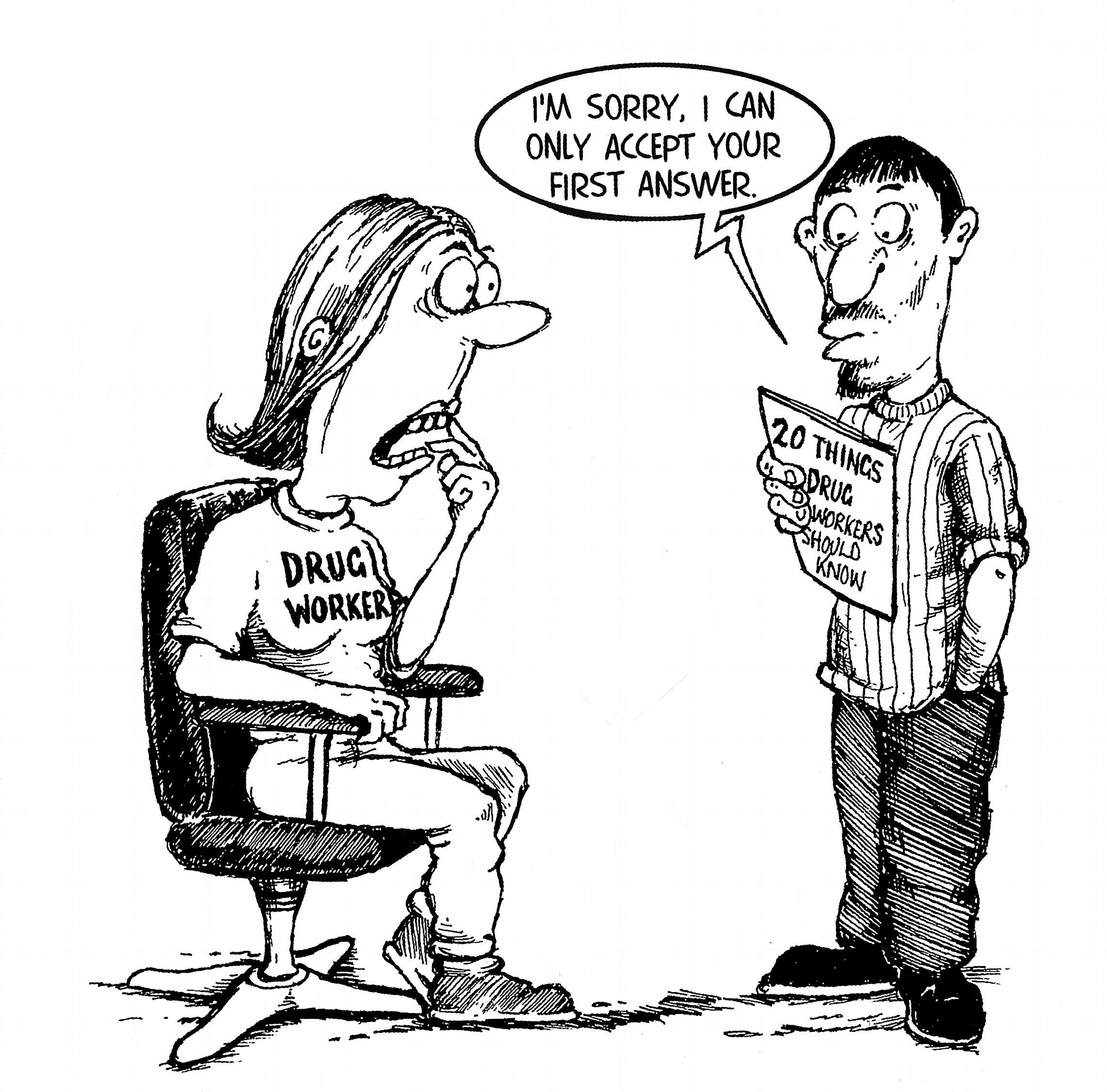
2 minute read
So what Sorts of Treatment are Available and Where Can I get Them?
What’s the Nature of Your Problem?
So What Types of Treatment are Available, and Where Can I Get Them?
Your first step on the route to resolving your problem is to try to identify just what the problem is. Some people may feel that they know what the problem is – using illegal drugs. This, in itself, rarely constitutes a problem for anybody. On the other hand, you might be experiencing so many problems that you can't sort out which ones are related to the drugs that you are using from those that are simply a part of your day to day life. Some people will be quite capable of identifying their problems for themselves, whereas others may need some help with this. For these people, a drug advice and information centre will be the first port of call. These services used to describe themselves as ‘counselling’ services and in the past were often avoided like the plague. Staff tended to be either well-meaning dogooders who didn't have a clue, or they were just corrupt know-nothings who were earning big salaries for sitting on their arses. This last group were infinitely preferable to the first lot. If you weren't careful, they'd be trying to persuade you to do a 'family sculpt' or tell your feelings to a chair. Fortunately, this particular type of drugs worker is becoming an endangered species, although they can still be found in some agencies and certain parts of the country. Anyway, a good advice and information project can sit you down and try to help you identify what your problems are, and give you advice on what the various options are. Bad ones will identify problems that you never recognised as problems and tell you that only they can help you get over them. This booklet intends to play a similar role, but it cannot give specific information about services available in your area, so ask your friends, see if any of them can recommend a good drugs agency or worker.
D
rug services are broadly divided into three specific sectors.
1 Statutory
The statutory sector are those services that tend to be run by the NHS, Social Services, Probation, or some combination of all three. Drug Dependency Clinics, NHS Hospital Detoxifications and Community Drug Teams are examples of services in the statutory sector.
2 Voluntary
The voluntary or non-statutory sector covers the various charitable organizations that work in the field (although it should be pointed out that the majority of the day-to-day funding for such organizations actually comes from local or central government, so they often aren’t as independent as their label might suggest.) Most of the counselling, advice and information services and the long-term in-patient rehabs and therapeutic communities fall into this sector.
3 Private
Finally, there is the private sector, drug treatment services that are operated for profit, which can include anything from a GP selling diconal scripts at £20 a shot to in-patient rapid detoxification services to plush Minnesota Model rehabs for the rich and famous like The Priory. Many of the agencies working in the field will provide a mix of the services that follow, rather than just one. And sometimes, people will be able to choose from a range of services in there area, while in other areas, there will just be the one agency contracted to provide all drugs services.





